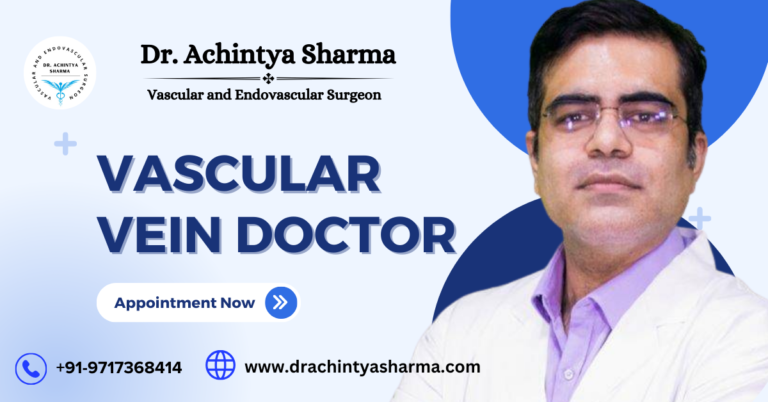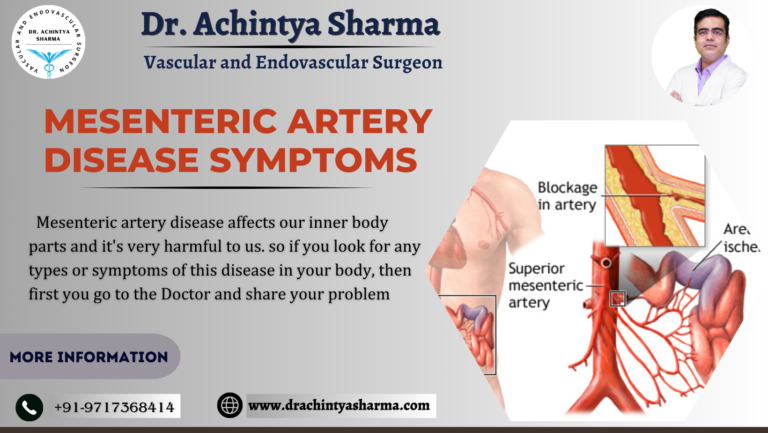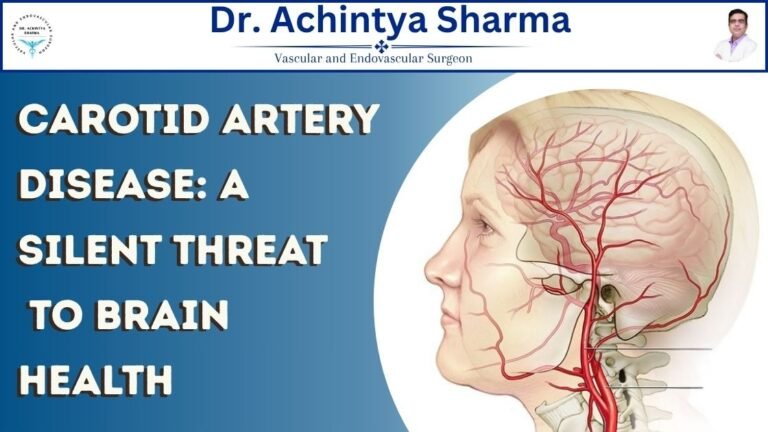Good blood vessel health is key to overall well-being. Your blood vessels play a vital role in transporting oxygen and nutrients throughout your body, and poor vascular health can lead to issues like high blood pressure, poor circulation, and even cardiovascular diseases. Deficiencies in essential vitamins like vitamin B complex, K, C, E, and D can exacerbate vascular problems, including varicose veins, peripheral artery disease (PAD), peripheral vascular disease (PVD), and spider veins. Fortunately, these vitamins can significantly improve vascular health and normalize blood pressure. In this blog, we’ll explore how these vitamins work, their benefits, and the foods rich in these nutrients. We’ll also touch on insights from renowned expert Dr. Achintya Sharma on the importance of a balanced diet for vascular health.
How Vitamins Can Transform Your Vascular Health
Did you know that nearly 1 in 3 adults in India suffers from high blood pressure, often linked to poor vascular health? The good news is that simple dietary changes, including the right vitamins, can help restore normal blood circulation and regulate blood pressure. Vitamins like vitamin B complex, K, C, E, and D are not just essential for overall health, they are powerhouses for vascular repair and maintenance. Deficiencies in these vitamins can lead to serious vascular issues like varicose veins, PAD, PVD, and spider veins.
Vitamins play a key role in strengthening blood vessels, improving blood flow, and reducing inflammation. For instance, Vitamin B complex helps in reducing homocysteine levels, a major risk factor for vascular damage. Similarly, Vitamin K prevents calcium buildup in arteries, while Vitamin C boosts collagen production, keeping blood vessels flexible. Let’s dive deeper into how each vitamin contributes to vascular health and how deficiencies can lead to vascular problems.
Ready to take charge of your vascular health? Read on to discover the best vitamins and foods to include in your diet today!
Essential Vitamins for Vascular Health
| Vitamin | Benefits | How It Helps | Food Sources |
| Vitamin B Complex (B1, B2, B3, B6, B9, B12) | Improves blood flow, reduces inflammation, supports red blood cell production | Strengthens blood vessels, reduces the risk of varicose veins, improves circulation in PAD and PVD | Whole grains (bajra, jowar), lentils (dal), spinach, eggs, dairy (yogurt) |
| Vitamin K | Promotes healthy blood clotting, prevents vascular calcification | Maintains flexible arteries, prevents spider veins, supports vascular health | Leafy greens (spinach, fenugreek, mustard greens) |
| Vitamin C | Enhances blood vessel elasticity, reduces oxidative stress | Repairs and strengthens fragile blood vessels, reduces spider veins and varicose veins | Citrus fruits (oranges, lemons), amla (Indian gooseberry), bell peppers |
| Vitamin E | Reduces inflammation, prevents plaque buildup in arteries | Improves blood flow, alleviates symptoms of PAD and PVD, promotes healthier veins | Almonds, sunflower seeds, spinach |
| Vitamin D | Improves blood flow, reduces the risk of hypertension | Supports endothelial function, reduces vascular complications like varicose and spider veins | Fortified dairy, mushrooms, fatty fish (salmon) |
How These Vitamins Normalize Blood Pressure
High blood pressure is often a result of stiff or narrowed blood vessels. Vitamins like vitamin B complex and C improve blood vessel flexibility, while Vitamin K prevents calcification. Vitamin E reduces oxidative stress, and Vitamin D supports endothelial function. Together, these vitamins work synergistically to maintain healthy blood pressure levels.
According to Dr. Achintya Sharma, “A diet rich in these vitamins not only improves vascular health but also addresses the root causes of hypertension, such as inflammation and oxidative stress. Deficiencies in these vitamins like vitamin B complex can lead to serious vascular complications, including varicose veins, PAD, PVD, and spider veins.”
Conclusion
Your vascular health is in your hands, and the right vitamins can make all the difference. By incorporating Vitamin B complex, K, C, E, and D into your diet through nutrient-rich Indian foods, you can improve blood circulation, normalize blood pressure, and reduce the risk of cardiovascular diseases. Deficiencies in these vitamins can lead to vascular problems like varicose veins, PAD, PVD, and spider veins, making it essential to maintain a balanced diet. As Dr. Achintya Sharma emphasizes, “A balanced diet is the cornerstone of vascular health.”
Take the first step today, revamp your diet and give your blood vessels the nourishment they deserve!




